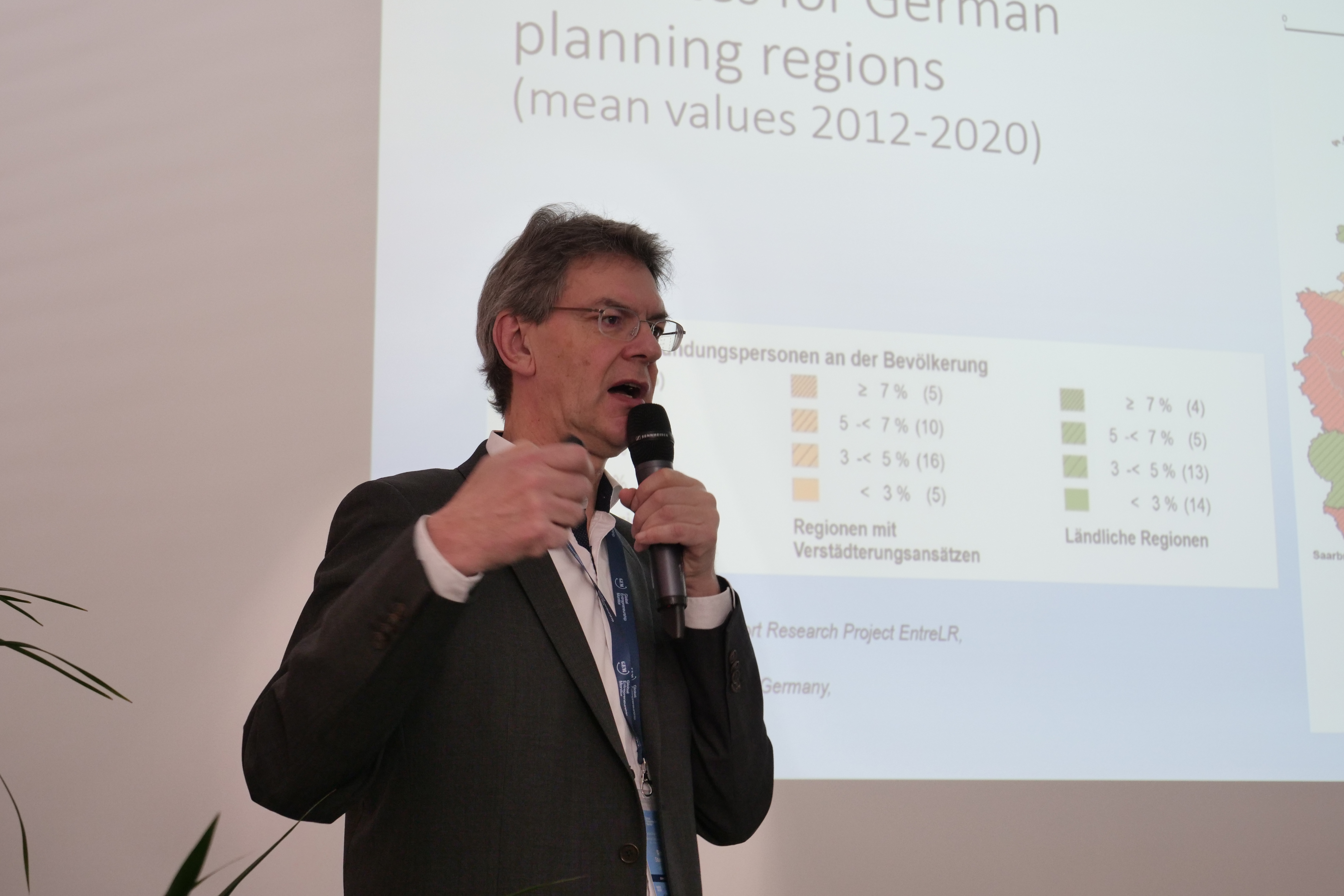Total early-stage Entrepreneurial Activity (TEA) rose from 6.9% (2021) to 9.1% (2022), the highest level ever since GEM Germany commenced in 1999. This is among the findings from the 23rd GEM Germany National Report. The study describes and explains entrepreneurial activities and perceptions of entrepreneurship in Germany in 2022, compared to the findings with 49 other GEM participating countries and with data from previous years.
The TEA rate covers both people who are preparing to start a business at the time of the survey but whose formal implementation has not yet taken place (Nascent Entrepreneurs) and people who have started their own business or founded a company in the last three and a half years (Young Entrepreneurs). There was a sharp TEA rate drop during the COVID-19 pandemic. However, entrepreneurial activity recovered as the pandemic progressed.
The report also features the following key findings in the Executive Summary:
1. Germany surpassed the international TEA percentage point increase.
Overall, there was also a positive trend in entrepreneurial activity at the international level. From 2021 to 2022, these was a 0.4 percentage point increase among all GEM countries. Germany's increase is 1.8 percentage points above this average. Other countries, such as the USA (+ 2.7 percentage points) or Norway (+ 3.4 percentage points), show even stronger momentum.
2. The number of younger entrepreneurs has increased in Germany.
In Germany, entrepreneurial activities have been shifting to the younger age groups over the last four years. In 2022, the two youngest age groups covered by GEM have TEA rates of 15.2% (18-24-year-olds) and 13.1% (25-34-year-olds). Hence, they are well above the average for all in the 18-64 age range. By contrast, the TEA rate for 55-64 year-olds is only 4.1%. This means that the entrepreneurial rate of the youngest age group is almost four times as high as that of the oldest age group.
3. The population with immigration history is more likely to start a business than those born in Germany.
Just under 27% of entrepreneurs in Germany are people with an immigration history. This is defined as people who have immigrated themselves to Germany since 1950 (first generation) or whose parents have both immigrated (second generation). On average over the long term (2016 to 2022), this group has higher entrepreneurial activity (6.7%) than native-born Germans (5.9%). Entrepreneurs with a history of immigration come frequently from Turkey, Russia and Poland. Furthermore, the group of immigrant founders is characterized by a comparatively below-average income; 60% are men and 40% women; and the strongest age group is 35-44 year-olds. Companies with those having an immigrant background have moderately higher export shares compared to new ventures by natives, but an even lower technology orientation.
4. Increases in entrepreneurial activities have not made a difference in the gender gap.
Since GEM was launched in 1999, women's entrepreneurial activity has been below that of men. This is also true for 2022: women (7.1%) founded companies significantly less frequently than men (11%). The overall higher level of entrepreneurial activity has not led to a narrowing of the gender gap. Higher entrepreneurial rates by women are offset by disproportionate increases in entrepreneurial activity by men. Among female founders, 60% start their businesses as part-time and just under 40% as full-time activity. Among men founders, this ratio is nearly reversed, with just under 65% in full-time employment and a good 35% in part-time employment.
5. There are ventures that are technology-oriented and have growth expectations.
The share of technology-oriented ventures is 3% in 2022, down slightly from the previous year (4%). After all, 7.1 % of all founders expect their company to have a strong increase in employees in the near future. Germany thus ranks at the bottom internationally in terms of both the technology orientation of ventures and growth expectations. For example, there are around four times more technology and growth-oriented ventures in France or the United Kingdom.
6. The integration of social and ecological measures is particularly important for founders in Germany.
Social aspects are included by 61% of founders in their entrepreneurial decisions. This figure is more than 10 percentage points higher than for established entrepreneurs. Ecological aspects, on the other hand, are considered by more than half of the founders and 61.5% of the established companies. Overall, the issue of sustainability is prioritized over profit by more than 45% of founders. This figure is around 8 percentage points lower for established companies.
7. There is an innovation-friendly environment with infrastructure in need of improvement.
The venture-related framework conditions examined by GEM include political, economic, social and cultural contextual factors which, if positive, can favor new ventures (quantity and quality). Since the start of the surveys in 1999, the assessments of these factors by selected experts in Germany have been very consistent. However, there have been noticeable changes in the ranking of a few contextual factors in recent years. These include the physical infrastructure (communication options, transport routes, office and production space), whose assessment has deteriorated somewhat in recent years. The group with the best ratings now includes companies and consumers' appreciation of new products and services and public support programs. A slight improvement in ranking over the years can be seen for R&D Transfer. Entrepreneurial Education at School remains the framework condition with the worst rating. In 2022, Germany’s framework condition are close to the international average.
Access the full report in German. The authors are Rolf Sternberg (pictured above), Natalia Gorynia-Pfeffer, Florian Täube, Lennard Stolz, Julia Schauer, Armin Baharian and Matthias Wallisch.

